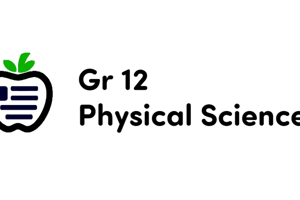Podcast
Questions and Answers
What type of bonding is predominantly involved in organic chemistry?
What type of bonding is predominantly involved in organic chemistry?
- Ionic bonding
- Metallic bonding
- Covalent bonding (correct)
- Hydrogen bonding
What element is the foundation of organic chemistry?
What element is the foundation of organic chemistry?
- Oxygen
- Carbon (correct)
- Hydrogen
- Nitrogen
Which type of reaction involves the addition of atoms or groups to a molecule?
Which type of reaction involves the addition of atoms or groups to a molecule?
- Substitution reactions
- Redox reactions
- Addition reactions (correct)
- Elimination reactions
What functional group is present in alcohols?
What functional group is present in alcohols?
Why is chiral recognition considered important in biological systems?
Why is chiral recognition considered important in biological systems?
How does stereochemistry differ from chirality in organic chemistry?
How does stereochemistry differ from chirality in organic chemistry?
What is the general formula for alkenes?
What is the general formula for alkenes?
Which type of reaction involves the removal of atoms or groups from a molecule?
Which type of reaction involves the removal of atoms or groups from a molecule?
What feature allows carbon to form a wide range of chemical structures?
What feature allows carbon to form a wide range of chemical structures?
Which type of reaction involves the transfer of electrons between molecules?
Which type of reaction involves the transfer of electrons between molecules?
What is the term for carbon atoms bonded to four different groups in organic molecules?
What is the term for carbon atoms bonded to four different groups in organic molecules?
What do enantiomers refer to in the context of organic chemistry?
What do enantiomers refer to in the context of organic chemistry?
Study Notes
Exploring Organic Chemistry
Organic chemistry, a fascinating and expansive branch of chemistry, encompasses the study of carbon-based compounds. These compounds form the backbone of life as we know it, as they make up the structure of living organisms. Let's delve into the fundamentals and key concepts of organic chemistry, with particular focus on the subfield of organic chemistry.
The Foundation of Organic Chemistry: Carbon
Carbon is the element that gives organic chemistry its name. Carbon, with its ability to form single, double, and triple bonds, provides unmatched structural variety. Atoms of carbon can bond with hydrogen, oxygen, nitrogen, and various other elements. This versatility allows carbon to form a staggering array of unique chemical structures, which can interact with one another in highly specific ways.
Molecular Structures: Stereochemistry and Chirality
Organic molecules often possess chiral centers, which are carbon atoms bonded to four different groups. Chiral molecules can exist in two non-superimposable mirror image forms, known as enantiomers. This ability to exist in two distinct forms opens the door to chiral recognition, a key feature in biological systems.
Stereochemistry describes the spatial arrangement of atoms in molecules, while chirality refers to the non-superimposable mirror image forms of molecules. Understanding these concepts is essential in organic chemistry to predict reactions, synthesize new compounds, and explore biological activity.
Bonding and Reactions in Organic Chemistry
Unlike inorganic chemistry, organic chemistry often involves covalent bonding between carbon and other elements. These bonds are formed by overlapping electron orbitals, which leads to the sharing of electrons between atoms.
Organic reactions are the processes by which organic compounds are transformed into other compounds. Many of these reactions occur through the breaking and formation of chemical bonds. Some of the most common organic reactions are:
- Substitution Reactions: Processes in which one atom or group replaces another in a molecule.
- Addition Reactions: Processes in which atoms or groups are added to a molecule.
- Elimination Reactions: Processes in which atoms or groups are removed from a molecule.
- Redox Reactions: Processes in which electrons are transferred between molecules.
Functional Groups and Classification of Organic Compounds
Organic compounds can be classified according to their functional groups, which are specific combinations of atoms and bonds that are responsible for a molecule's chemical reactivity and properties. Some common functional groups include:
- Alkanes: Hydrocarbons with single covalent bonds between carbon atoms.
- Alkenes: Hydrocarbons with double covalent bonds between carbon atoms.
- Alkynes: Hydrocarbons with triple covalent bonds between carbon atoms.
- Alcohols: Organic compounds containing an OH group bonded to a carbon atom.
- Amines: Organic compounds containing NH2, NH-, or NR2 groups bonded to a carbon atom.
- Carboxylic Acids: Organic compounds containing a COOH group bonded to a carbon atom.
The Impact of Organic Chemistry
Organic chemistry has had a profound impact on our world. It underpins much of our understanding of biology, and it provides the foundation for the pharmaceutical industry. Organic chemistry also plays essential roles in the production of polymers, plastics, and many other materials.
Learning organic chemistry provides students with a deep understanding of the molecular structure and reactivity of organic compounds. This knowledge is essential for those pursuing careers in chemistry, biology, medicine, materials science, and other related fields. Understanding the principles of organic chemistry also offers a unique perspective on the world, as it reveals the deep connections between chemistry and the natural world.
As we continue to explore the endless possibilities of organic chemistry, we will uncover new applications and knowledge about the world we live in. So, dive in and embark on your journey to uncover the fascinating world of organic chemistry.
[Note: All information in this article is accurate to the best of my knowledge as of the current date, February 16, 2024. For the most up-to-date information, please consult current academic resources or textbooks.]
Studying That Suits You
Use AI to generate personalized quizzes and flashcards to suit your learning preferences.
Description
Dive into the key concepts of organic chemistry including the foundational role of carbon, molecular structures like stereochemistry and chirality, bonding and reactions unique to organic compounds, classification based on functional groups, and the profound impact of organic chemistry on biology, medicine, and material sciences.




